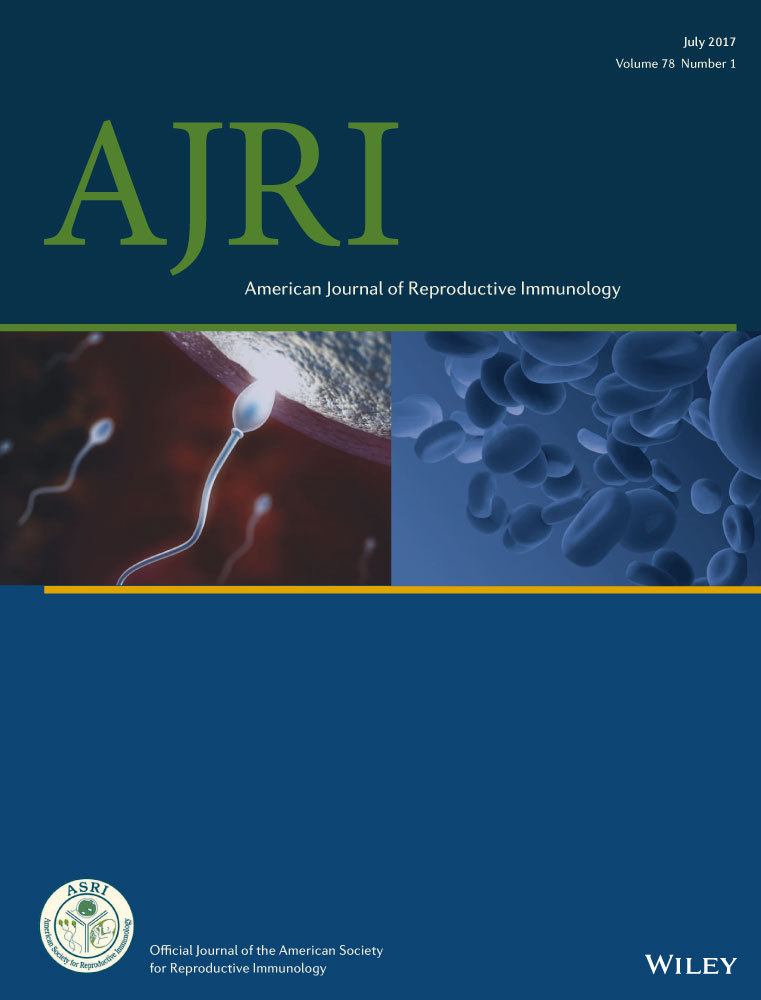Changes in expression of the CD200 tolerance-signaling molecule and its receptor (CD200R) by villus trophoblasts during first trimester missed abortion and in chronic histiocytic intervillositis
Abstract
Problem
Expression of CD200 at the feto-maternal interface is associated with successful murine and human pregnancy. CD200 binding to CD200 receptors on lymphomyeloid cells suppresses inflammation and induces Tregs. CD200 receptors are also expressed on mouse and human placental trophoblast cells. What is the expression of CD200 and CD200R in human missed abortions which have preserved Treg levels and in chronic histiocytic intervillositis (CHI) where maternal inflammatory cells cause IUGR?
Methods
Immunohistiochemistry for CD200, CD200R, and Ki67 using human placental sections from missed abortions, term placenta, and CHI. PCR testing was done for trisomy in missed abortion.
Results
CD200 and CD200R were expressed by human villus trophoblasts from 2 weeks post-implantation to term. Cytotrophoblast proliferation (Ki-67+ count) decreased at term. In first trimester missed abortion cases, CD200>CD200R villus trophoblasts accompanied missed abortion of non-trisomic male fetuses. CD200 and Ki67+ trophoblast proliferation was preserved in CHI with maternal inflammatory cell infiltration but CD200R was greatly decreased.
Conclusion
Residual CD200 activity may prevent completion of abortions via induction of Treg cells. In CHI, infiltrating maternal effector T cells may block Treg induction. An autocrine role for CD200-CD200R interaction versus inhibition of soluble CD200 by soluble CD200R is discussed.




